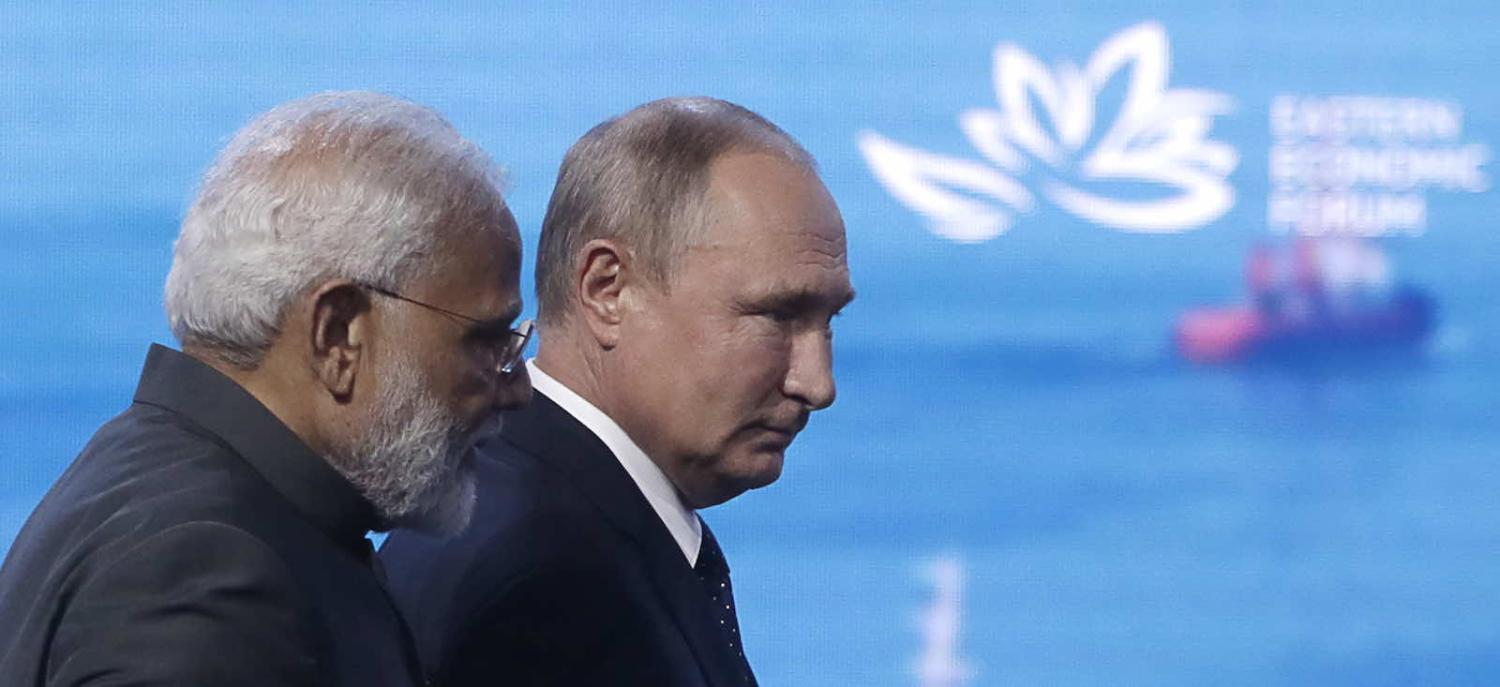Ukraine and Taiwan are now the major focal points in the geopolitical arena, testing the diplomacy of the United States but also other nations – India as much as any. Where India-China relations have soured in recent years, in some ways making India’s response to the Taiwan issue more straightforward, the conflict between Ukraine and Russia leaves New Delhi in a quandary.
Russia’s “unusual” build-up of troops on its border with Ukraine is taking place right as India is receiving the much-awaited S-400 air defence systems from Moscow. The missile deal has already been complicated by looming US sanctions on India under the Countering America’s Adversaries Through Sanctions Act, the US legislation meant to punish countries dealing substantively in the defence realm with America’s adversaries – where it is still unclear if India will be granted a waiver. But this must also be posited against increasing concerns about China’s regional influence in the Indo-Pacific, where India has been expected to be at the forefront of efforts to counter Beijing and is a much-touted member of the “Quad” grouping including the United States, Japan and Australia.
Should the Ukraine issue escalate, India will be presented with a dilemma, whether to stay silent on an important event involving its long-standing and traditional partner Russia, or to take sides.
The India-Russia relationship has endured as a robust bilateral partnership for decades, particularly in defence procurement, whereas India-Ukraine relations pale in comparison. In trade, although India is Ukraine’s biggest export market in the Indo-Pacific region, India’s total trade with Ukraine during 2019–20 stood at approximately US$2.5 billion, barely a quarter of India’s total trade with Russia.
There have been fitful efforts to kick-start India-Ukraine bilateral ties…the India-Russia relationship is undoubtedly in a higher gear.
India and Ukraine are engaged in several military hardware projects. Ukraine is involved in modernisation of Indian army tanks and armoured vehicles and provides spares for Indian naval ships and submarines. There has also been talk of fierce competition between Ukrainian and Russian military-industrial complexes for India’s arms market, with India’s defence deals with Ukraine often viewed in Moscow as a loss for the Russian defence sector.
But for big-ticket purchases, Russia dominates, shown by India’s deals for the S-400 and more recently AK-203 assault rifles. At the same time, Ukraine’s defence partnership with Pakistan has always been a bone of contention for India, whereas Russia is more alert to New Delhi’s displeasure when dealing with Islamabad.
During the 2014 Ukraine-Russia conflict, India broke its traditional approach of keeping a low profile and sided with Russia – India’s National Security Advisor at the time noting there are “legitimate Russian interests involved”. As tensions in eastern Ukraine again ratcheted up earlier this year, India welcomed all efforts to calm the situation. New Delhi had also last year voted against a Ukraine-sponsored resolution in the United Nations, which had sought to condemn human rights violations in Crimea by Russia.
There have been fitful efforts to kick-start the India-Ukraine bilateral relationship. India’s Prime Minister Narendra Modi met Ukrainian President Volodymyr Zelensky on the sidelines of the COP26 climate change talks in Glasgow last month, while the Ukrainian defence minister earlier led a delegation to Aero India for discussions with his Indian counterpart and signed a handful of weapons-related agreements.
But set against the India-Russia annual summit held in December and the inaugural defence and foreign ministers’ 2+2 dialogue, the India-Russia relationship is undoubtedly in a higher gear. According to recent media reports, India and Russia are likely to sign a 10-year agreement for the transfer of new-age military technologies. This is a prize New Delhi could risk by siding against Russia over Ukraine.
India and Russia have several areas of disagreement – the “Indo-Pacific” construct is one, as well as very different relationships with China and the United States. But India may find itself under pressure to speak out should the Ukraine-Russia conflict escalate – and then keeping all sides happy will be an acute challenge.

